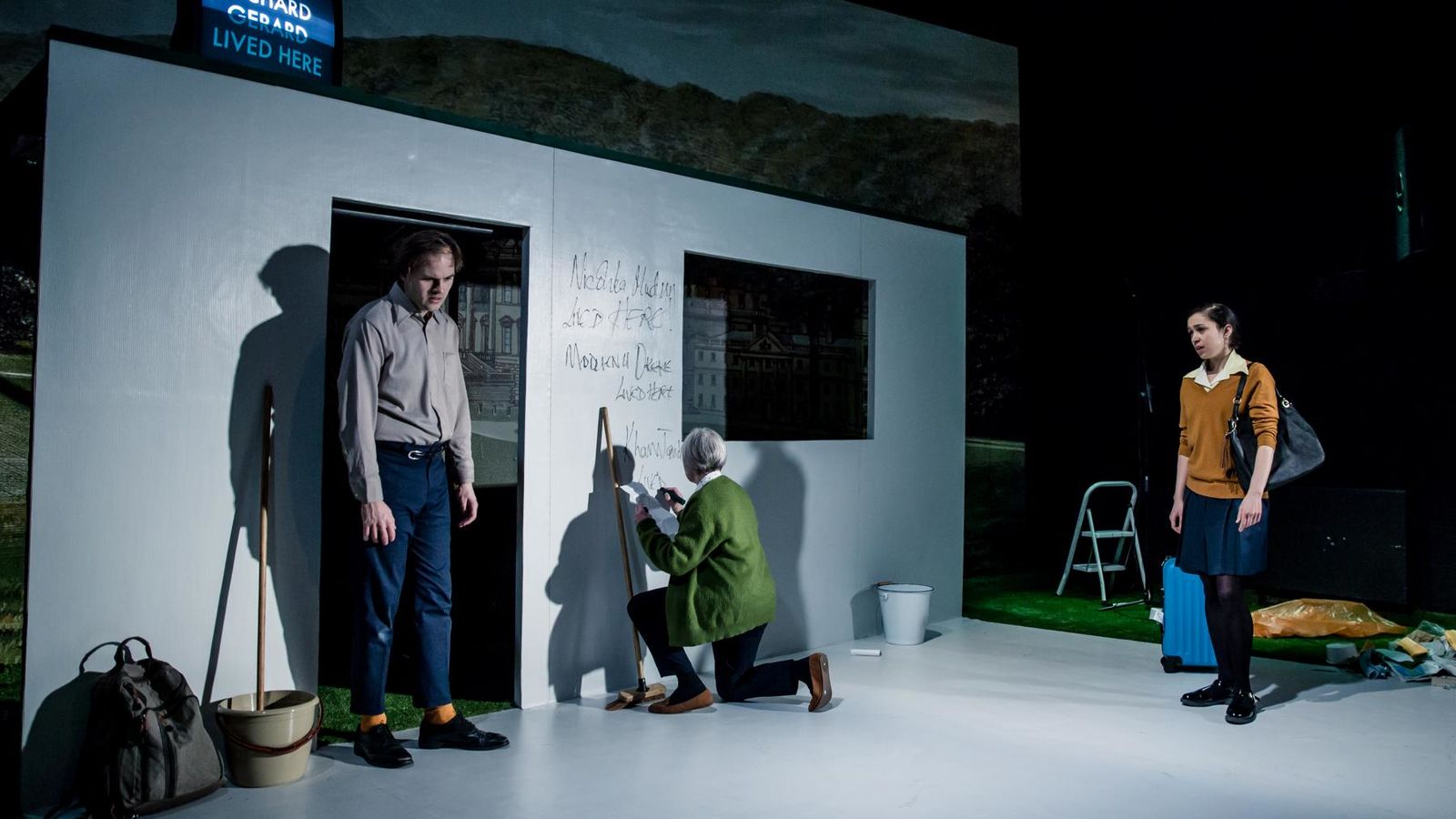
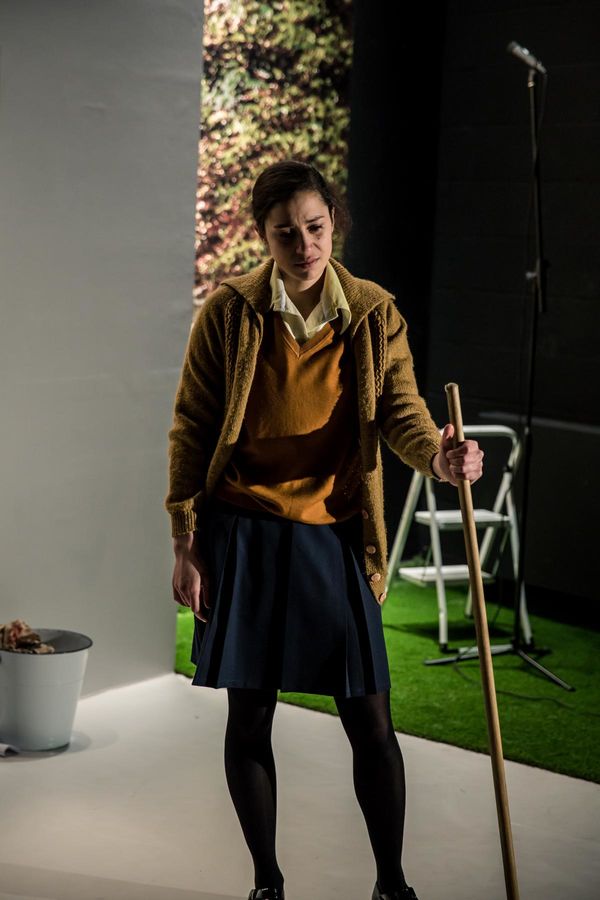
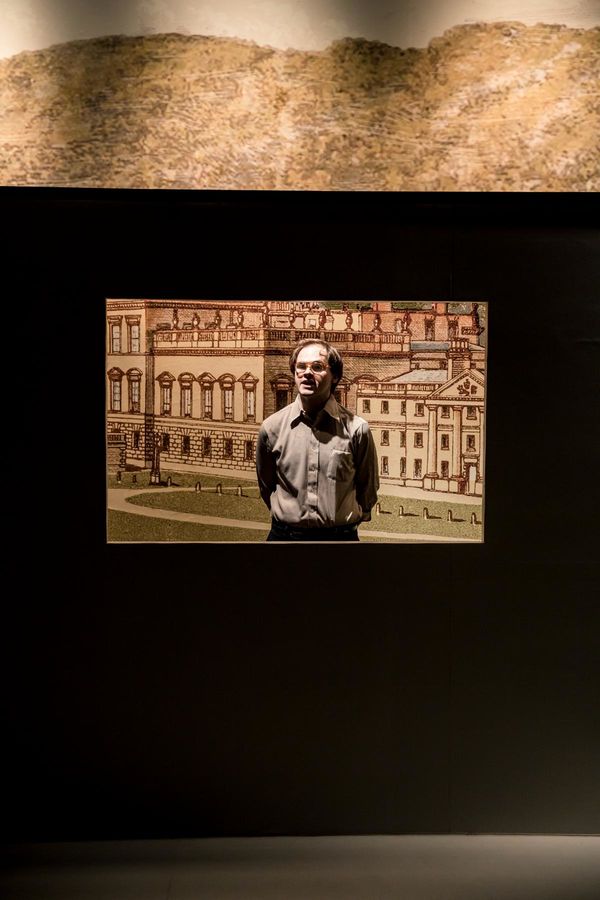
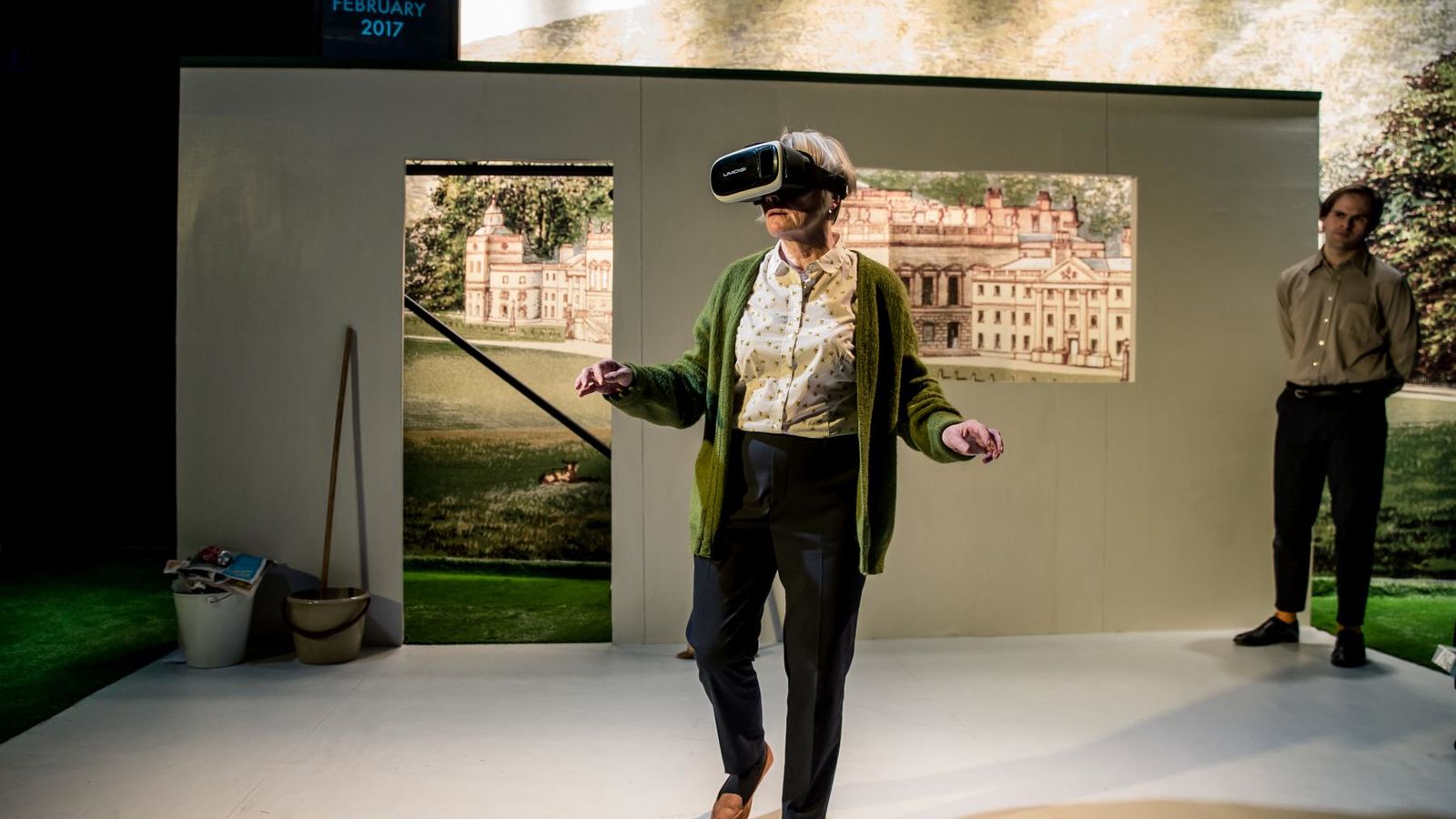
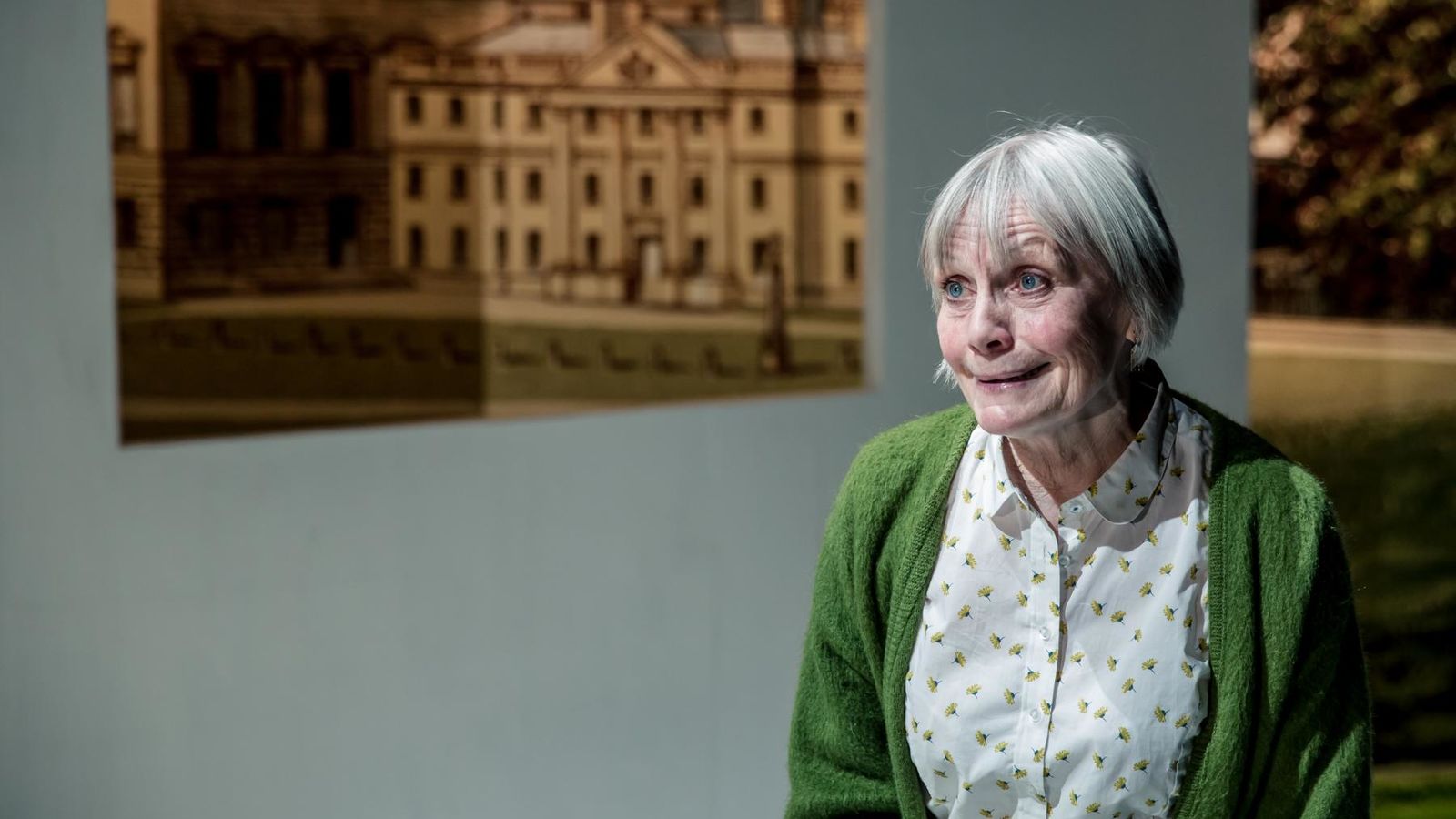
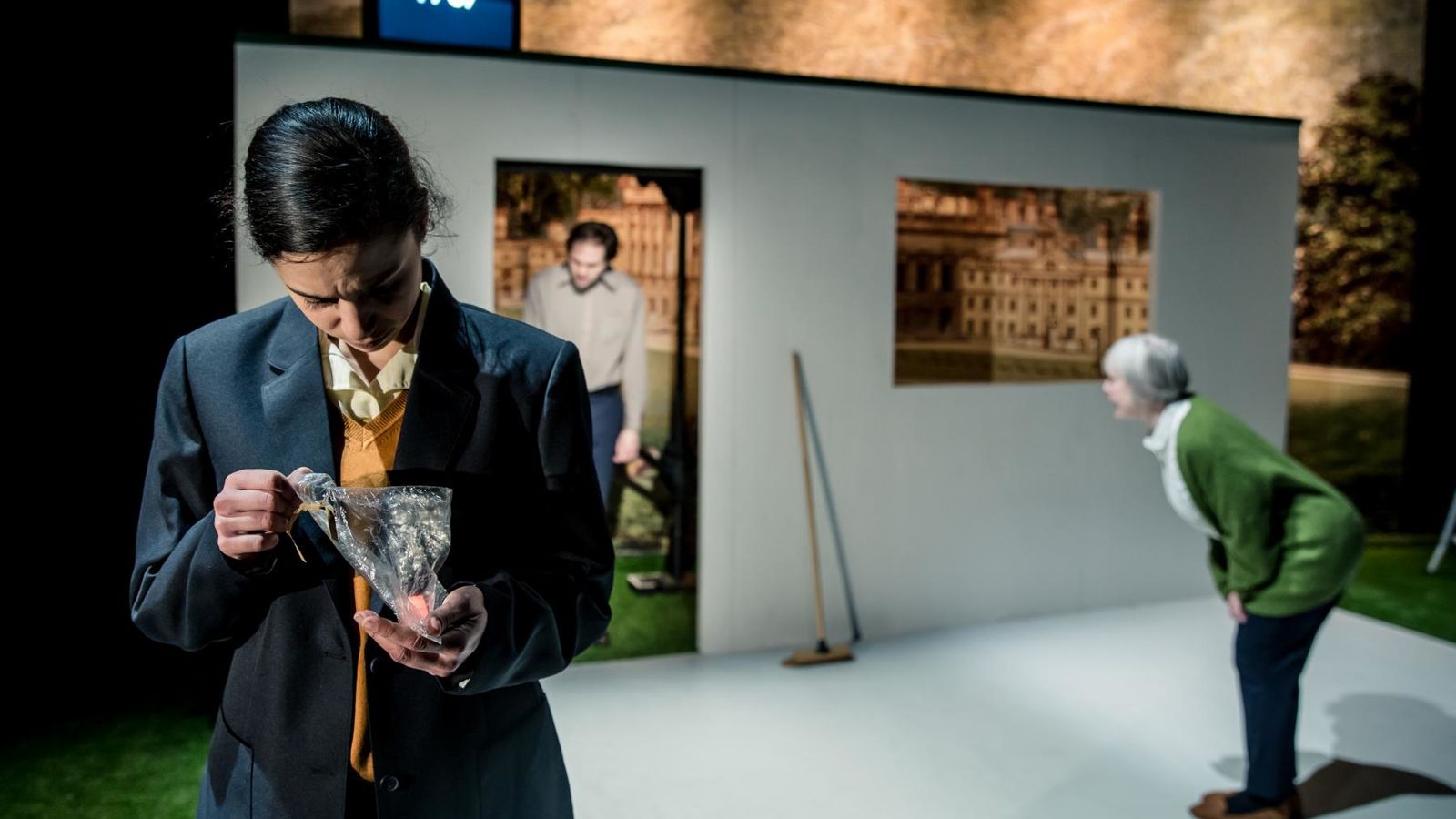
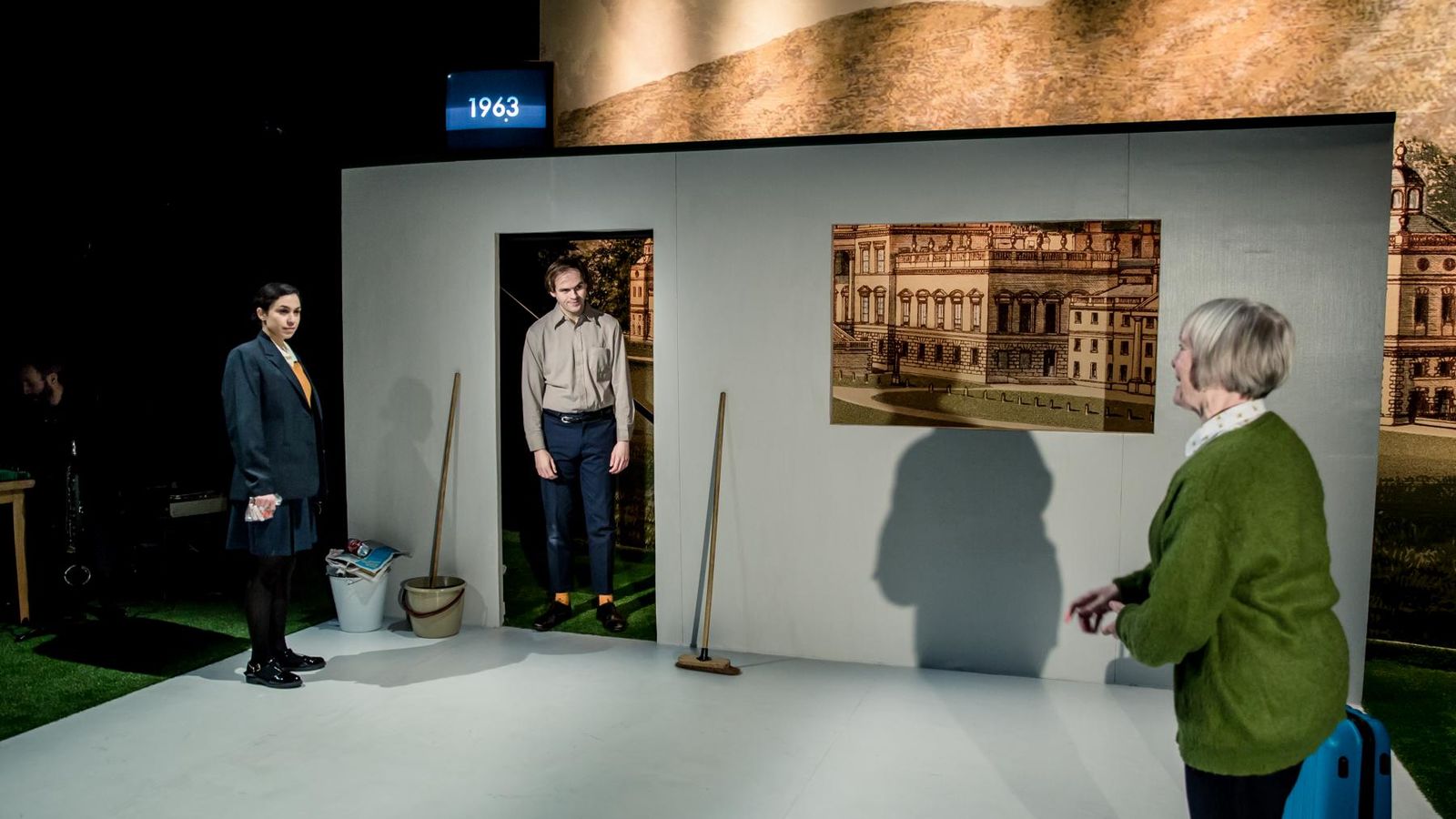
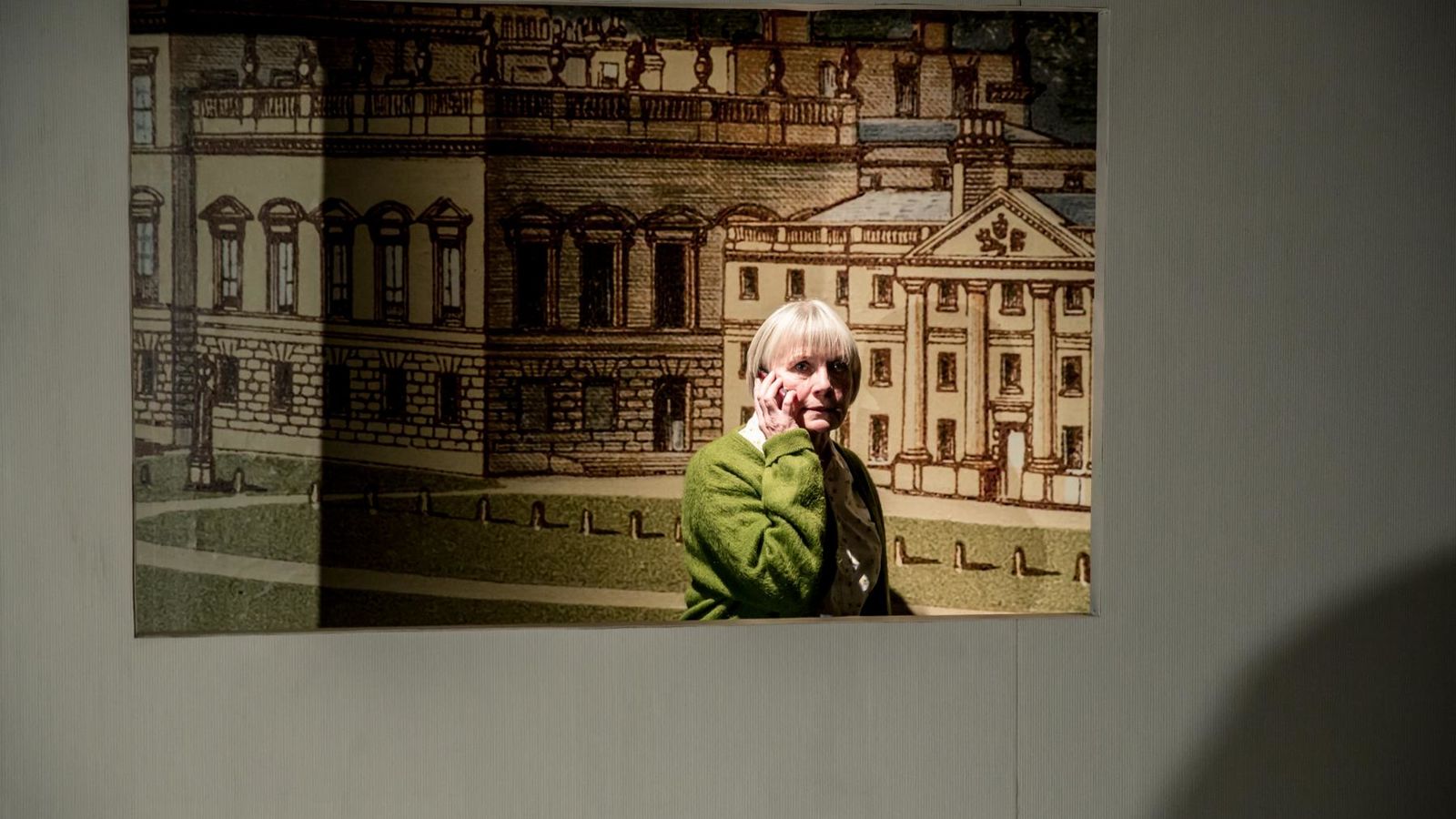
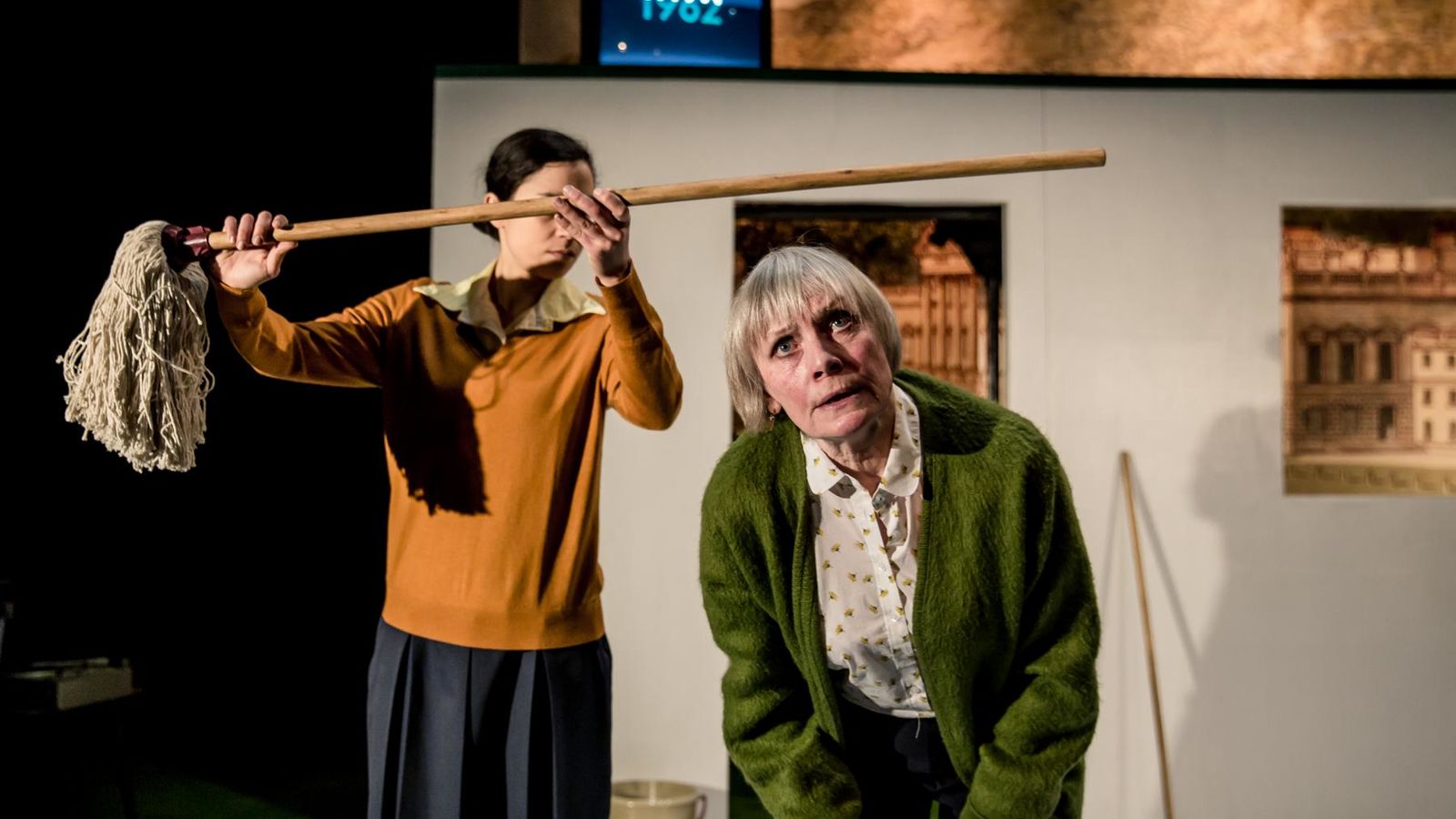
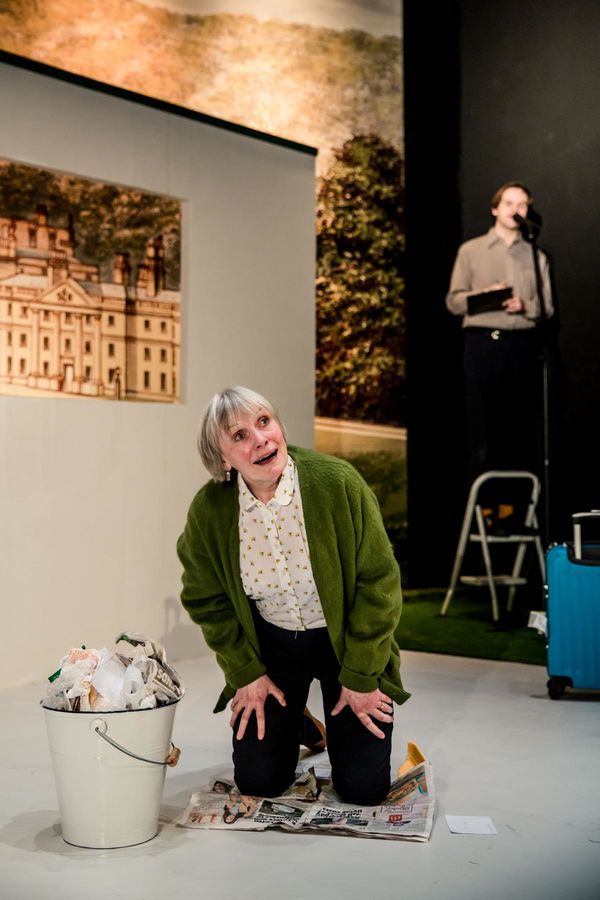
Trap Street
(London)
by Kandinsky
Direction: James Yeatman
Studio
Guest performance during FIND 2019
In »Trap Street«, the Kandinsky theatre group focus on the »Austen Estate«, a fictitious tower block in London’s East End named after Jane Austen. Built in the 1960s as idyllic, affordable social housing for communal living, the block is now earmarked for demolition, though a few of the old inhabitants are still stubbornly refusing to leave their homes. Using a mosaic-like narrative structure, the story jumps from the present to the past and back again and traces the story of Valerie Welch, a working-class woman who moved into the newly built estate as the child of a single mother. Later, as an old woman, she is driven out of her flat because the now utterly run-down building is going to be knocked down to make way for prohibitively expensive luxury apartments. The demolition of the tower block will not only permanently erase an utopian housing project but also the life stories of the working class for whom the flats made it possible to live a dignified life in the centre of the gentrified, money-governed metropolis of London.
The young English theatre company Kandinsky consists of producer and writer Lauren Mooney and writer and director James Yeatman, who co-directed »Beware of Pity« at the Schaubühne. Kandinsky’s working method is for the director, writer and performers to focus on a topic and devise the text together during rehearsals with the aim of combining the precision of a written text with the experiments in theatrical form that are inherent in project work.
Composer and Musician: Zac Gvirtzman
Co-designers: Joshua Gadsby, Naomi Kuyck-Cohen
Stage Management: Hanne Schulpé
Film: Harry Yeatman
Producer: Lauren Mooney
With: Amelda Brown, Amalia Vitale, Hamish MacDougall
